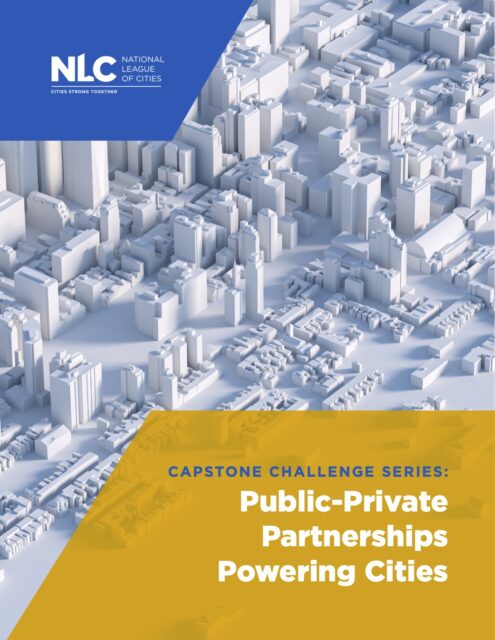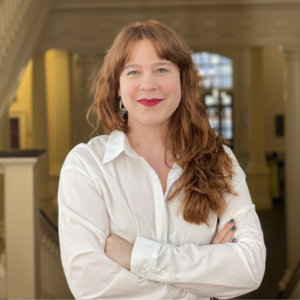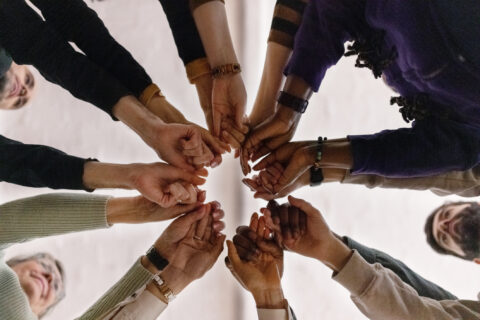The NLC Capstone Challenge Series was a pilot program designed to connect the strengths of our Capstone and Enterprise partners with motivated local leaders to create solutions for member needs.
In this six-month program (June 2021-January 2022), NLC acted as a convener and thought partner, but the series was driven by NLC’s strategic partners bringing innovative solutions to the table and working with members on projects that benefit their municipalities. In the 2021 inaugural cohort, eight strategic partners worked with 17 member cities on relevant projects. At the end of the program, select projects were awarded most innovative and impactful. This program ran from June 2021 to January 2022.
Watch the 2-day showcase and awards ceremony below.
Day 1
Day 2
Judges included:
- Mayor Vince Williams – NLC President and Mayor of Union City, GA
- Brooks Rainwater – Senior Executive and Director of City Solutions, NLC
- Aarti Tandon – CEO, Smart City Expo USA
2021 Projects

Madison, WI: Automate and market community access to city services
Accela is working with Madison, WI to build and market to residents and businesses a new automated workflow for city services. These workflows can help enhance equitable access to housing, healthful food, clean water, clean air, technology, knowledge, legal services, transportation, or other areas. The Madison team will select an existing or new needed city service, such as registering eligible vaccine recipients or managing assistance requests (housing, Wi-Fi hotspots, vaccine transportation, etc.) Accela will configure and implement the software, build a marketing campaign around the service, and deliver the marketing collateral to Madison to execute the campaign.

South Bend, IN – Jackson, TN – Sunland Park, NM: Toolkit for the future of retail in cities
Retail is an important pillar of communities, and the COVID-19 pandemic has accelerated the need for businesses and consumers to operate online as well as in traditional retail environments. Amazon is working with South Bend, IN, Jackson, TN, and Sunland Park, NM to dive into the Future of Retail in cities and create a toolkit for how cities can support retail businesses in this new reality. This toolkit will seek to answer the question: what does a seller need to be successful in the Future of Retail and how can cities support them? It may delve into common regulatory questions cities may face that can help remove barriers for sellers, explore how e-commerce can be a platform for cities to explore their own commitments to equity and inclusion, and utilize case studies or testimonials from sellers who have had success in finding support from their local governments. This toolkit will complement the findings in NLC’s Future of Retail report that will be released this year.
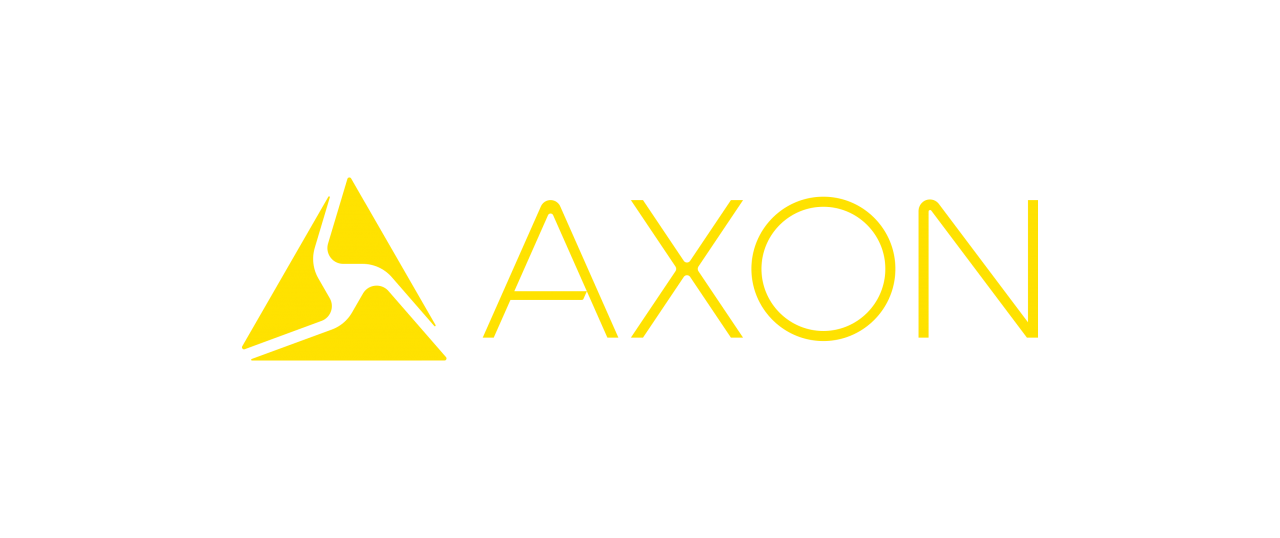
Phoenix, AZ: Virtual reality (VR) law enforcement training
Axon is working with Phoenix, AZ to implement virtual reality (VR) training for law enforcement officers so they can better respond to a variety of crisis situations. The VR training platform is new technology that Axon is launching nationwide this summer as a pilot. It features two core offerings, Community Engagement Training and Simulator Training. Scenarios developed with experts emphasize critical thinking skills, empathy, de-escalation, and community-focused outcomes and help drive retention to better prepare law enforcement officers. These scenarios range from responding to crisis calls involving the mentally ill, to intervening with a fellow officer who may be unnecessarily escalating a situation. Axon is working directly with the Phoenix Police Department to establish a VR training pilot program which will empower officers to respond with greater confidence to situations they may face in the field. They are also developing a resource that can be shared with all municipalities about best practices for centering equity in law enforcement training practices.

Columbia, SC – St. Louis, MO – Houston, TX: Equity in mobility services and electric vehicle (EV) technology
As investment in new mobility services and electric vehicle technology increases at an accelerating rate, lower-income communities will be left behind without directed support and investment from government and industry to ensure equitable access to newer technologies. Utilities must ensure grid investment and resiliency aligns with electric mobility needs throughout their catchment areas. Charging infrastructure companies and municipalities need to provide charging solutions that align with transportation demand patterns of all demographics, particularly those who do not have a single-family home or garage. Shared mobility services – which are often critical for basic transportation needs for underprivileged communities – will undoubtedly be more expensive during the transition to electric vehicles. Without purposeful alignment of private industry and government, mobility options for underprivileged communities will be unavailable, less convenient, and cost-prohibitive to access. For this project, Columbia, SC, St. Louis, MO, and Houston, TX are working with Enterprise Holdings to analyze mobility equity in their communities and contribute to a research study and report to better understand the importance of socioeconomic equity of new mobility—particularly electric mobility.

Cedar Rapids, IA – Butte-Silver Bow, MT – Purcellville, VA: Broadband availability in your city
Broadband coverage is the new critical infrastructure. There is neither economic development, personal economic advancement, nor can there be social equity, without access to the Internet. The Esri team is working with Cedar Rapids, IA, Butte-Silver Bow, MT, and Purcellville, VA to develop an app to put out to residents to test broadband speed and get data on broadband capabilities across the municipality. They will then be able to analyze that data and provide recommendations on equity, reach, and needed additional investment.
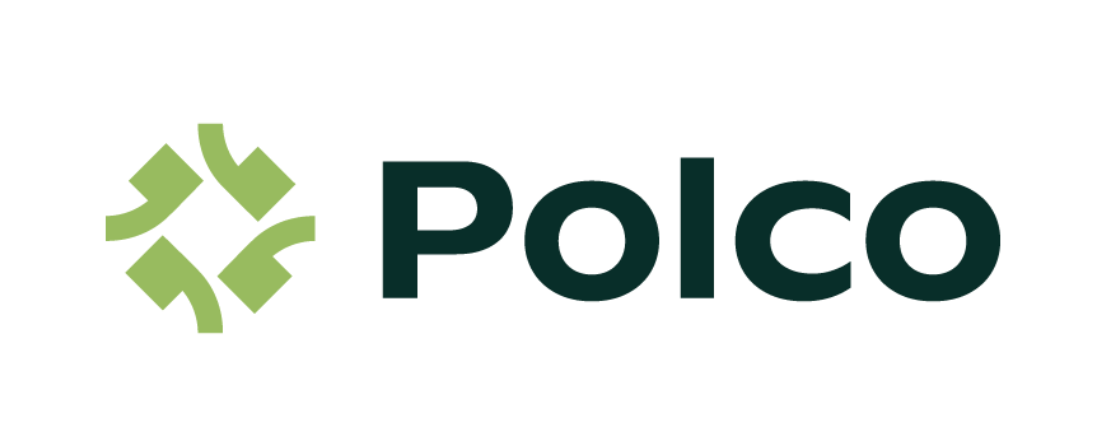
New Orleans, LA – Dublin, OH – Broadview, IL: Public input processes
Resident input is critical for municipal budgeting, planning, and transportation services, but with competing time commitments, safety considerations due to COVID-19, and other challenges, cities struggle to get public input. Using Polco’s platform and tools such as surveys, polls, and live polling, Polco will assist New Orleans, LA, Dublin, OH, and Broadview, IL in assessing their current input process and designing a new program of public input. The cities can use the results to inform decision-making, as well as to document how American Rescue Plan Act (ARPA) funding is used by the city for those projects. This will also help them build a standing panel of residents that they can engage for input in the future.
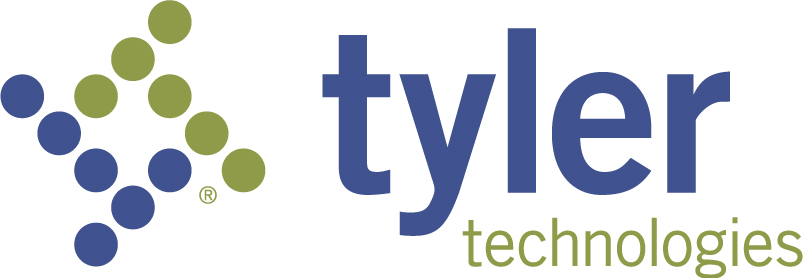
North Lauderdale, FL – Alexandria, LA: Cybersecurity culture best practices
In the current cyber threat environment, organizations must be vigilant. Vigilance begins with preparation. Being prepared starts with being aware. To be successful, you need to develop cybersecurity awareness throughout your entire organization, which leads to organizational practices that support the secure execution of your business strategy. You need to create a culture of cybersecurity. In this project, Tyler Technologies is working with North Lauderdale, FL and Alexandria, LA to develop a five-step cybersecurity culture to advance security efforts that ensure both a top-down and bottom-up approach to ownership of cybersecurity in local government.

Washington, DC: Removing transportation as a barrier to the vaccine
As the COVID-19 vaccine rollout progresses across the country, there are still millions of Americans who have not been vaccinated – often because they do not have easy access to the vaccine. Uber is working with Washington, DC to help ensure that those most in need can get to and from their vaccination appointment(s) easily. They will also create a case study with best practices for innovative public-private partnerships to support public health.

